Iraqi Lawmakers Demand U.S. Withdrawal After Trump Visit
Containing foreign influence has become a hot-button issue in Baghdad, and the president's trip has provoked vociferous backlash.BAGHDAD — Iraqi lawmakers Thursday demanded U.S. forces leave the country following a surprise visit by President Donald Trump that politicians denounced as arrogant and a violation of national sovereignty.
Trump’s trip to U.S. servicemen and women at al-Asad Airbase in western Iraq on Wednesday was unannounced and the subject of extreme security, which is routine for presidential visits to conflict regions. But it came at a time when containing foreign influence has become a hot-button issue in Iraqi politics, and it provoked vociferous backlash.
Iraqi lawmakers were smarting after the U.S. president left three hours after he arrived without meeting any officials, drawing unfavorable comparisons to the occupation of Iraq after the 2003 invasion.
“Trump needs to know his limits. The American occupation of Iraq is over,” said Sabah al-Saidi, the head of one of two main blocs in Iraq’s parliament.
Trump, al-Saidi added, had slipped into Iraq, “as though Iraq is a state of the United States.”
While Trump didn’t meet with any officials, he spoke with Prime Minister Adel Abdul-Mahdi by phone after a “difference in points of view” over arrangements led to a face-to-face meeting between the two leaders to be scrapped, according to the prime minister’s office.
The visit could have unintended consequences for American policy, with officials from both sides of Iraq’s political divide calling for a vote in Parliament to expel U.S. forces from the country.
The president, who kept to the U.S. air base approximately 100 kilometers (60 miles) west of Baghdad, said he had no plans to withdraw the 5,200 troops in the country. He said Ain al-Asad could be used for U.S. air strikes inside Syria following his announcement last week to withdraw U.S. troops from there.
The suggestion ran counter to the current sentiment of Iraqi politics, which favors claiming sovereignty over foreign and domestic policy and staying above the fray in regional conflicts.
“Iraq should not be a platform for the Americans to settle their accounts with either the Russians or the Iranians in the region,” said Hakim al-Zamili, a senior lawmaker in al-Saidi’s Islah bloc in Parliament.
U.S. troops are stationed in Iraq as part of the coalition against the Islamic State group. American forces withdrew in 2011 after invading in 2003 but returned in 2014 at the invitation of the Iraqi government to help fight the jihadist group. Trump’s visit was the first by a U.S. president since Barack Obama met with then-Prime Minister Nouri al-Maliki at a U.S. base outside Baghdad in 2009.
Still, after defeating IS militants in their last urban bastions last year, Iraqi politicians and militia leaders are speaking out against the continued presence of U.S. forces on Iraqi soil.
Supporters of the populist cleric Moqtada al-Sadr won big in national elections in May, campaigning on a platform of curbing both U.S. and rival Iranian involvement in Iraqi affairs. Al-Sadr’s lawmakers now form the core of the Islah bloc, which is headed by al-Saidi in Parliament.
The rival Binaa bloc, commanded by politicians and militia leaders close to Iran, also does not favor the U.S..
Qais Khazali, the head of the Iran-backed Asaib Ahl al-Haq militia that fought key battles against IS in north Iraq, promised on Twitter that Parliament would vote to expel U.S. forces from Iraq, or the militias would force them out by “other means.”
Khazali was jailed by British and U.S. forces from 2007 to 2010 for managing sections of the Shia insurgency against the occupation during those years.
Trump’s visit would be a “great moral boost to the political parties, armed factions, and others who oppose the American presence in Iraq,” Iraqi political analyst Ziad al-Arar said.
Still, the U.S. and Iraq developed considerable military and intelligence ties in the war against IS, and they continue to pay dividends in operations against militants gone into hiding.
Earlier in the month, Iraqi forces called in an airstrike by U.S.-coalition forces to destroy a tunnel used by IS militants in the Atshanah mountains in north Iraq. Four militants were killed, according to the coalition.
A hasty departure of U.S. forces would jeopardize such arrangements, said Iraqi analyst Hamza Mustafa.
And relations between the U.S. and Iraq extend beyond military ties. U.S. companies have considerable interests in Iraq’s petrochemical industry, and American diplomats are often brokers between Iraq’s fractious political elite.
Iraq’s Sunni politicians have been largely quiet about the presidential visit, reflecting the ties they have cultivated with the U.S. to counterbalance the might of the country’s Iran-backed and predominantly-Shiite militias.
White House press secretary Sarah Huckabee Sanders said Abdul-Mahdi accepted Trump’s invitation to the White House during their call, though the Prime Minister’s office has so far refused to confirm that.
Your support is crucial…With an uncertain future and a new administration casting doubt on press freedoms, the danger is clear: The truth is at risk.
Now is the time to give. Your tax-deductible support allows us to dig deeper, delivering fearless investigative reporting and analysis that exposes what’s really happening — without compromise.
Stand with our courageous journalists. Donate today to protect a free press, uphold democracy and unearth untold stories.

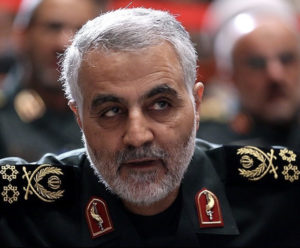

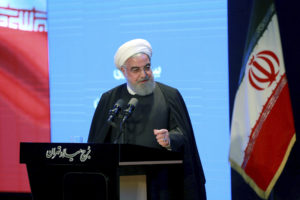
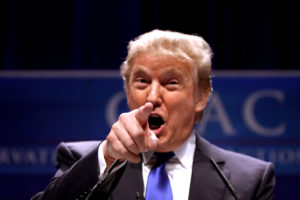
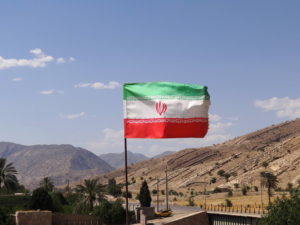
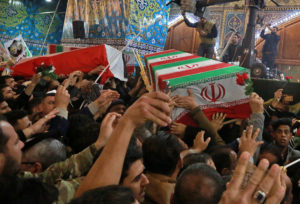


You need to be a supporter to comment.
There are currently no responses to this article.
Be the first to respond.